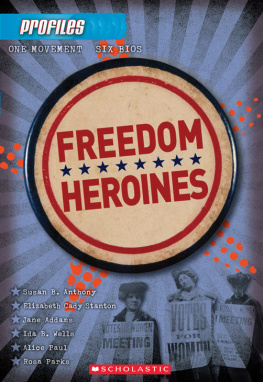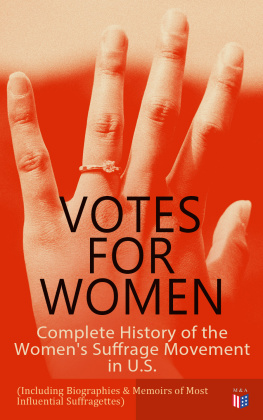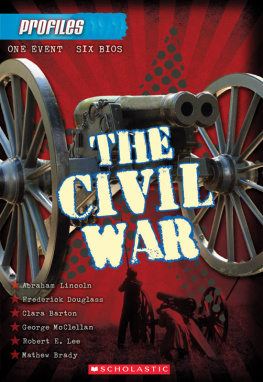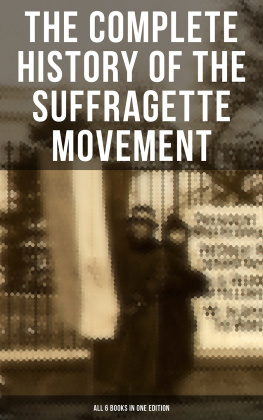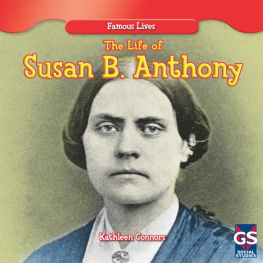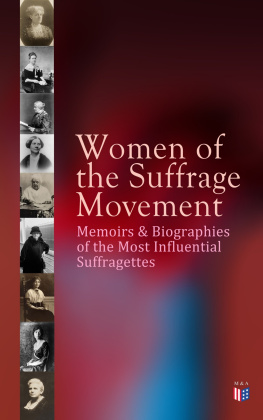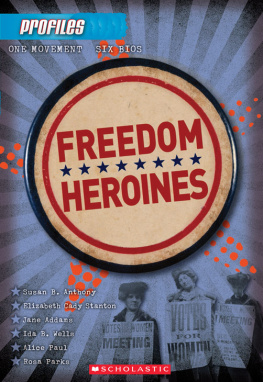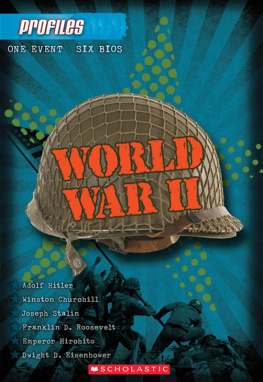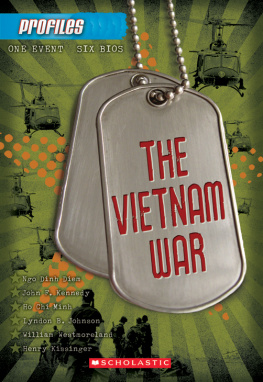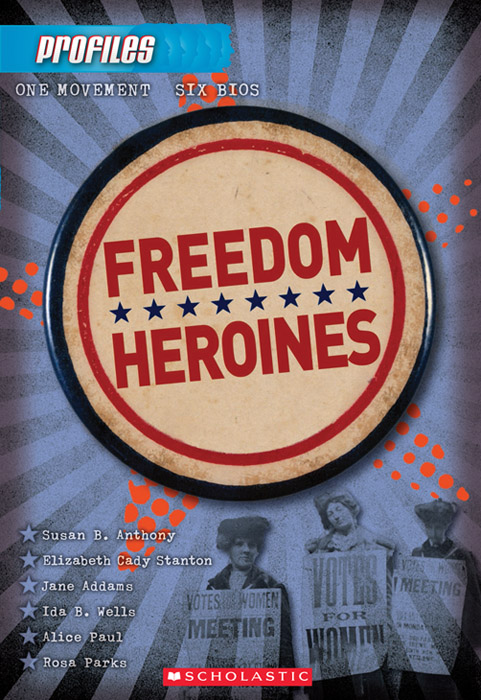



It took years of struggle for women in the United States to be granted . But it wasnt until 1920 that the Nineteenth Amendment allowed women to vote.
Until then, women in the United States were not only denied the vote but couldnt own property, access higher education, or pursue many professions. Women could not sign a contract, be sued, or bring a legal suit to court. They had no control over their wages and could not gain custody of their own children in a divorce.
The movement to give women greater control over their lives began in the late 1840s at a convention in Seneca Falls, New York, which was spearheaded by Susan B. Anthony and Elizabeth Cady Stanton. Anthony and Stanton had already been involved in the movement, which advocated freeing slaves in the United States. When slaves were finally freed after the Civil War, and the U.S. passed the Fourteenth and Fifteenth Amendments in 1868 and 1870, respectively, many women fighting for equal rights were disappointed. They were outraged that womens rights were not included in those two amendments. Many, like Anthony and Stanton, continued to speak out for womens rights, despite the opposition of the male-dominated press and political system.
By the early 1900s, women in a few states, such as Wyoming, were granted the vote. Some property laws were also changed and women began to have access to higher education and new professions. But most women still could not vote. The tireless, vigorous efforts of womens rights advocate Alice Paul finally helped pass the Nineteenth Amendment in 1920.
Jane Addams spoke up for womens rights, too. She also fought to help the poor get an education, find jobs, and secure a decent place to live.
Ida B. Wells and Rosa Parks worked for womens rights and were also instrumental in changing the against blacks in the South. These laws let southern states treat blacks as second-class citizens. Blacks were forced to sit separately on the bus, live in different neighborhoods, eat in different restaurants, and attend different schools.
All six of these civil champions spoke out, wrote, picketed, protested, and used nonviolent methods to push for change. Their courage and persistence helped create new laws that promoted fairness and equality for all.

We shall some day be heeded, and... everybody will think it was always so... They have no idea of how every single inch of ground that she stands upon today has been gained by the hard work of some little handful of women in the past.
Susan B. Anthony was a pioneering advocate for womens rights. She worked tirelessly, often with her friend Elizabeth Cady Stanton, to change attitudes and laws in the United States so that women would be treated equally and fairly, and granted the right to vote.
EARLY YEARS
Susan Brownwell Anthony was born on February 15, 1820, on a farm in Adams, Massachusetts. She was the second child in her family. Her family believed in the faith, which opposes all war, encourages people to live a simple life, and stands up for the equality of men and women. Anthonys grandfather had fought in the American Revolution and served in the Massachusetts legislature.
From the time she was little, Anthony was surrounded by women who worked for a living. She and her siblings were expected to pitch in to help with chores on the farm. When she was six, the family moved to a large brick house in Battenville, New York, where her father ran cotton mills. He also educated his children and the women who worked in his mills. Later, he hired experienced women to teach them at their homes.
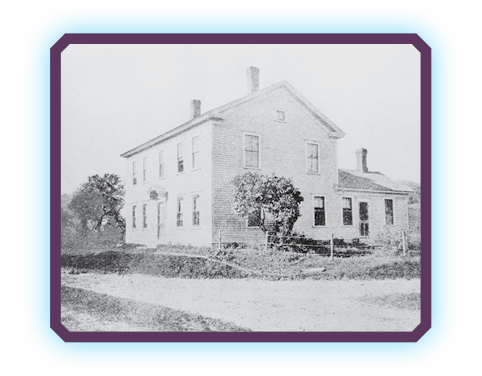
Anthonys family home in Battenville
Anthony herself began to teach in local schools when she was fifteen. Even then, she felt it was unfair that she was paid less than male teachers for the same work. When she turned seventeen, she attended the Deborah Moulsons Female Seminary, a Quaker school in Philadelphia, Pennsylvania. Unlike most schools for girls at that time, Anthony was taught algebra, literature, chemistry, and philosophy. She enjoyed her studies but hated that the schools founder, and headmistress, was often cruel and excessively strict with all the girls, especially with Anthony. Anthony was glad that her sister, Guelma, attended school with her. At least she had someone to talk to about how unhappy the headmistress made her feel at school.
In 1837, there was an economic downturn in the United States. Anthonys father went bankrupt. He could no longer pay the tuition for his daughters and withdrew both girls from school. He was even forced to sell everything they owned in an auction, including their clothes and personal possessions. The family moved to a settlement called Hardscrabble, New York, and started over.
FINDING HER WAY
To help pay her familys debts, Anthony took a teaching job in a New Rochelle, New York, boarding school. She was a strict and demanding teacher, but she was also critical of her own work. By 1845, the economy improved and things looked up for the Anthony family. Her father bought a farm outside Rochester, New York. This time she became headmistress of Canajoharie Academy. She was feeling more confident in her abilities, and she liked her independence so much that she even refused several suitors who wanted to marry her.
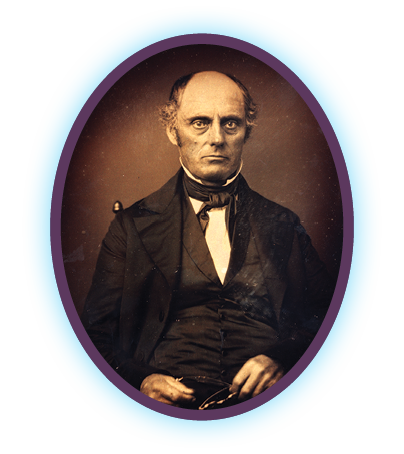
Daniel Anthony, Susans father
But Anthony was also becoming restless. In 1849, she helped her father run the farm while he built up an insurance business. She also began to become more involved in the temperance movement, which encouraged people to stay away from alcohol. She organized meetings and traveled to neighboring towns. She was terrific at detail work and tireless in her efforts. But soon another cause captured her interest and passion for changethe abolitionist movement against slavery. Anthony and her father became active in helping slaves escape to freedom in Canada.
MEETING STANTON
In 1851, Anthony met Elizabeth Cady Stanton. It was a meeting and a friendship that would change the lives of both women, who had a passionate interest in temperance, abolition, and especially womens rights. They shared stories of how they both had been shunned by organizations they had help organize and supportjust because they were women.
Anthony told Stanton how she had worked to organize a temperance convention. But when she asked to speak in front of the convention, instead of being welcomed, the male chairman said, The sisters were not invited to speak but to listen and learn. Anthony was furious. How could they treat women this way? Theyd contributed as much as men to the movement. They had a right to be heard, too. Anthony was so angry, she stormed out of the meeting. A few women joined her, but many stayed in their seats, worried that if they spoke up, men would call them meddlesome and disturbers.
Next page
